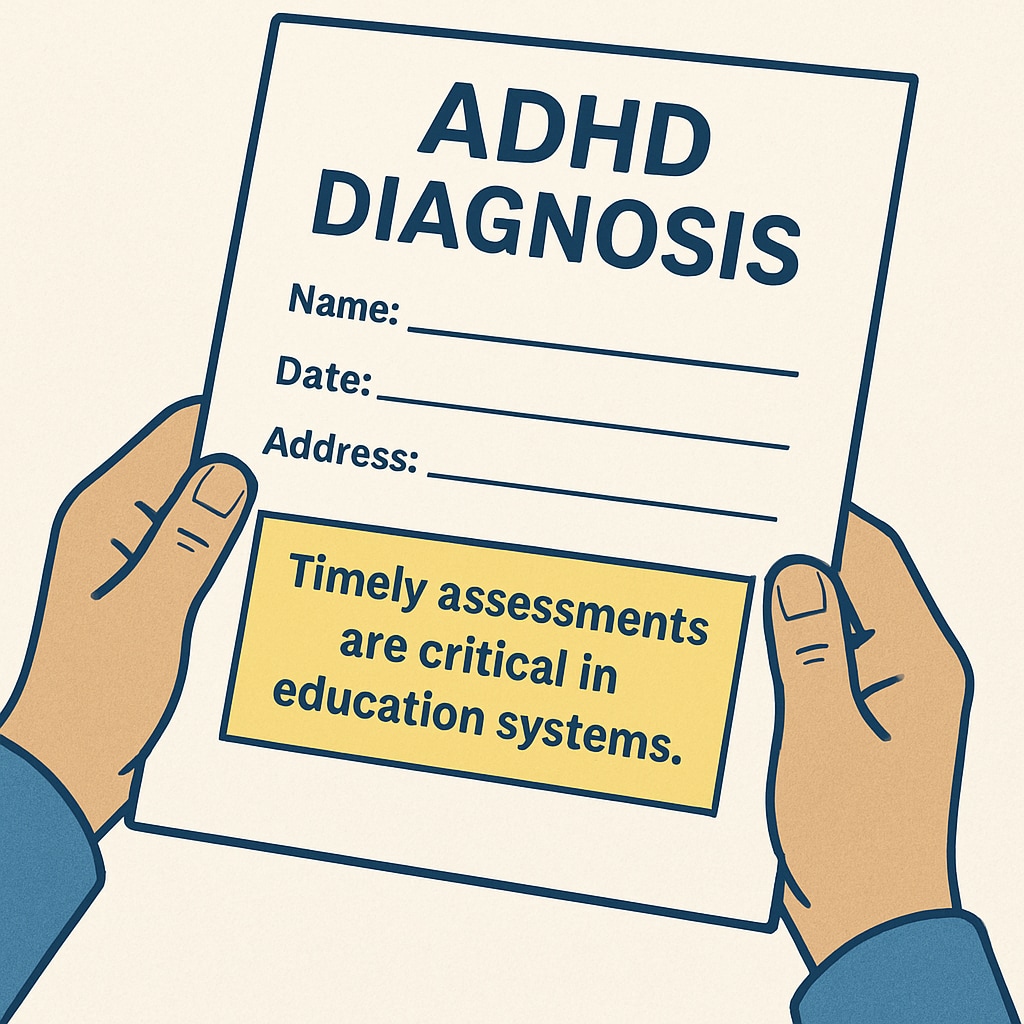In today’s educational landscape, the right to learn is often jeopardized by administrative inefficiencies and barriers. This is starkly evident in the case of a 15-year-old girl from the United Kingdom, who faced a 22-week gap in schooling due to issues tied to school transfer processes and a lack of support for her psychological health. Her ordeal underscores the critical intersection between school transfer procedures, mental health challenges, and education rights, including ADHD assessments and accommodations.
The Case: A 15-Year-Old Lost in the System
The girl in question had been struggling with psychological health issues, including symptoms consistent with ADHD (Attention-Deficit/Hyperactivity Disorder). As part of her care plan, her parents sought to transfer her to a school better equipped to support her needs. However, instead of facilitating a smooth transition, bureaucratic delays and inefficiencies resulted in her being out of school for 22 weeks. This prolonged absence not only disrupted her academic progress but also exacerbated her mental health challenges, leaving her feeling isolated and unsupported.

The Impact of Administrative Barriers on Education Rights
Administrative barriers, such as delayed paperwork, insufficient communication between schools, and a lack of urgency in addressing special needs, are not uncommon. However, their impact on vulnerable students can be profound. In this case, the girl’s ADHD assessment and access to necessary accommodations were delayed, leaving her without the critical support she required. Furthermore, the absence of a responsive system to address her educational needs violated her fundamental right to education, as outlined in the United Nations Convention on the Rights of the Child.
For many students with special needs, delays in school transfers or gaps in educational support can lead to long-term consequences, including lower academic achievement, reduced self-esteem, and worsening mental health conditions. According to WHO’s data on mental health, timely interventions and support systems are essential for young people struggling with psychological challenges.

Building a More Inclusive and Responsive System
To prevent cases like this, educational systems must become more inclusive and responsive to the needs of vulnerable students. This includes implementing streamlined school transfer processes, ensuring timely ADHD assessments, and providing adequate resources for mental health support within schools. Collaboration between parents, educators, and administrators is vital to create environments where students feel supported both academically and emotionally.
Additionally, governments and policymakers must prioritize funding for special education programs and mental health resources. As highlighted by Britannica’s overview of education systems, equitable access to education is a cornerstone of youth development and societal progress.
Conclusion: The Urgency of Addressing Educational Barriers
The story of this 15-year-old girl is not merely an isolated case—it is a reflection of systemic inefficiencies that require urgent attention. Administrative barriers should never stand in the way of a child’s right to learn, particularly for those grappling with psychological health challenges like ADHD. As educators, policymakers, and communities, we must work together to ensure that every child has access to a supportive and inclusive education system. Only by addressing these barriers can we safeguard the future of our youth and uphold their fundamental rights.
Readability guidance: Use concise paragraphs and lists to summarize key points; minimize passive voice and overly long sentences. Distribute transitional words (however, therefore, for example) evenly to improve flow.


